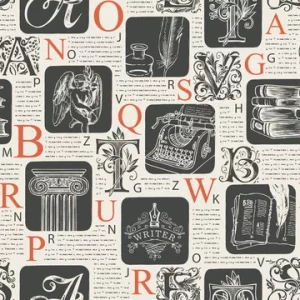By Murli Melwani
 Along with the tradition of educational excellence, a salubrious climate, and a relaxed pace of life, Shillong is a nursery of literary culture. I was witness to the growth of this culture from the fifties till the late seventies. It was my good fortune to know most of the writers personally. The contact with literary figures happened, less because I was a lecturer at Sankardev College, more because I gave time in the evenings to the bookshop I owned, Ratna’s Mascot.
Along with the tradition of educational excellence, a salubrious climate, and a relaxed pace of life, Shillong is a nursery of literary culture. I was witness to the growth of this culture from the fifties till the late seventies. It was my good fortune to know most of the writers personally. The contact with literary figures happened, less because I was a lecturer at Sankardev College, more because I gave time in the evenings to the bookshop I owned, Ratna’s Mascot.
Dr Verrier Elwin, a world-renowned anthropologist and ethnologist, who had donned khadi and worked with Gandhiji during the freedom movement, made Shillong his home. He was an impressive personality, with back-brushed collar-length hair and a perpetual cigar in his mouth. He wrote his autobiography, The Tribal World of Verrier Elwin, in Shillong.
 EP Gee, renowned for his 1953 discovery of Gee’s golden langur (Trachypithecus geei), was a member of Wildlife Board of India, along with well-known figures like Salim Ali and M Krishnan. He wrote the authoritative The Wild Life of India during his retirement in Upper Shillong. AL Basham, author of The Wonder That was India, married Catherine Sen (Shadap), who taught history at St. Mary’s College, Shillong. Basham travelled between Australia, his native country, and Shillong. He was buried in Shillong.
EP Gee, renowned for his 1953 discovery of Gee’s golden langur (Trachypithecus geei), was a member of Wildlife Board of India, along with well-known figures like Salim Ali and M Krishnan. He wrote the authoritative The Wild Life of India during his retirement in Upper Shillong. AL Basham, author of The Wonder That was India, married Catherine Sen (Shadap), who taught history at St. Mary’s College, Shillong. Basham travelled between Australia, his native country, and Shillong. He was buried in Shillong.
Nari Rustomji, former chief secretary, Government of Meghalaya, recorded his experiences in the Northeast in Enchanted Frontiers.
 J.N. Chowdury, author of The Tribal Culture and History of Arunachal Pradesh, The Khasi Canvas and Arunachal Panorama: A Study in Profile, would spend time at the Rabindra Library, from 7 pm till 9 pm, after a full day in government office. Everyone knew him as Mukul Chowdhury, not as Jyotindra Nath Chowdhury.
J.N. Chowdury, author of The Tribal Culture and History of Arunachal Pradesh, The Khasi Canvas and Arunachal Panorama: A Study in Profile, would spend time at the Rabindra Library, from 7 pm till 9 pm, after a full day in government office. Everyone knew him as Mukul Chowdhury, not as Jyotindra Nath Chowdhury.
JD Baveja served as the director of All India Radio, Shillong for a number of years. A heavy-set man with casually combed hair, he had the look of an artiste. He wrote Across the Golden Heights of Assam and NEFA and The New Horizons of the North East, and collaborated with two others in writing The Land where the Bamboo Blooms.
DD Mali taught economics in the college where I taught English. My evenings in the bookshop taught me that there was a need for a book on the economy of Meghalaya. I persuaded Mali to write such a book; Ratna’s Mascot published it. Shortly after the publication of the book, Mali applied for the position of the director of the small-scale industries institute that was being set up. What secured Mali the job was the fact that he had published a book.
 Mali subsequently wrote books like Economic Problems and Planning in Assam and Small Industry Development in North East India..
Mali subsequently wrote books like Economic Problems and Planning in Assam and Small Industry Development in North East India..
Chronicles of an Impossible Election by James Michael Lyngdoh gives the reader an insight into the functioning of the Election Commission. Lyngdoh, a winner of the prestigious Magsaysay Award, retired as the Chief Election Commissioner of India.
Mona Melwani won the first prize in the non-fiction category, for her entry, Tipu Sultan, in the Competition for Writers of Children’s Books, 1980, organised by the Children’s Book Trust. Her other two books are Just the Right Words: 201 Report Card Comments and The Disco Comes to Town( stories about the music scene in Shillong).
The iconic Nirad C Chaudhuri, who completed a book at the age of 100, has written in some detail about Shillong, a city he was connected with, in The Autobiography of An Unknown Indian. Sanjoy Hazarika, author of Rites of Passage, Strangers in the Mist and The Writing on the Wall, needs no introduction.
Non-fiction is often the precursor of fiction and poetry. Famous anthropologist Verrier Elwin was a poet too; a collection of 28 of his poems has been recently published by North East Zonal Cultural Centre. Jyoti Jafa, wife of VS Jafa, an IAS officer who was the Deputy Commissioner of Shillong, is the author of a historical novel, NurJahan. Since Jyoti Jafa was connected to one of the royal families of Rajasthan, she recreates the Mughal court in the novel in meticulous detail.
Shillong can boast of the recipient of a Padma Shri among its litterateurs: Patricia Mukhim. Her books include Waiting for an Equal World and Gender in India’s North East. She has other feathers in her cap: she is a social activist and the editor of The Shillong Times
Prize winning authors with roots in Shillong include Mitra Phukan, Janice Pariat, and Anjum Hasan. Mitra Phukan is the most prolific of them all, with 17 books to her credit. Janice Pariat and Anjum Hasan have won awards. Other novelists and short story writers and biographers include Bijoya Sawian, Ankush Saikia, Dhruba Hazarika and Daisy Hasan.
RG Lyngdoh, former home minister of Meghalaya, brought out a novel, Who the Cap Fits, that deals with the ethnic tensions in the Shillong of the seventies and eighties. Bikika Laloo Tariang, in her collection of short stories, Dad and The Salesman, presents both sides of the coin; she conveys the ignorance of fellow Indians about the people of the Northeast as well as the prejudices and insecurities of the locals.
Shillong is the background for most of the stories in Murli Melwani’s collection, Stories of a Salesman. William H Archer, wrote a complimentary review in Books Abroad, a journal brought by the University of Oklahoma, to give a brief quote: “(these)…are not stories with complex plots so much as sketches after the manner of Lafcadio Hearn, sharp vignettes of the daily round of East Indian people.”
The poets Ananya Guha, Robin Ngangom and Desmond Kharmawphlang founded the short lived Shillong Poetry Circle.
An evolving pantheon of writers and poets of Shillong can be found at https://seppanauthors.org/.
The literary narrative of Shillong will move forward as more poets, novelists and short story writers draw on a tradition going back to the fifties and build on the groundwork done by the contemporary poets and writers. We look forward to more voices from the Northeast presenting the unique points of view and sensibilities of fascinating cultures of the Seven Sisters. Authors from Shillong who wish to be added to the website can click on and complete “Author Instructions”
Murli Melwani grew up in Shillong and made a mid-career change in 1980. He is the author of two books of literary criticism: “Themes in Indo Anglian Literature” and “Themes in the Indian Short Story in English: 1835-1980. An Historical and Critical Survey; and two collections of short stories: “Ladders Against the Sky” and “Beyond the Rainbow.



